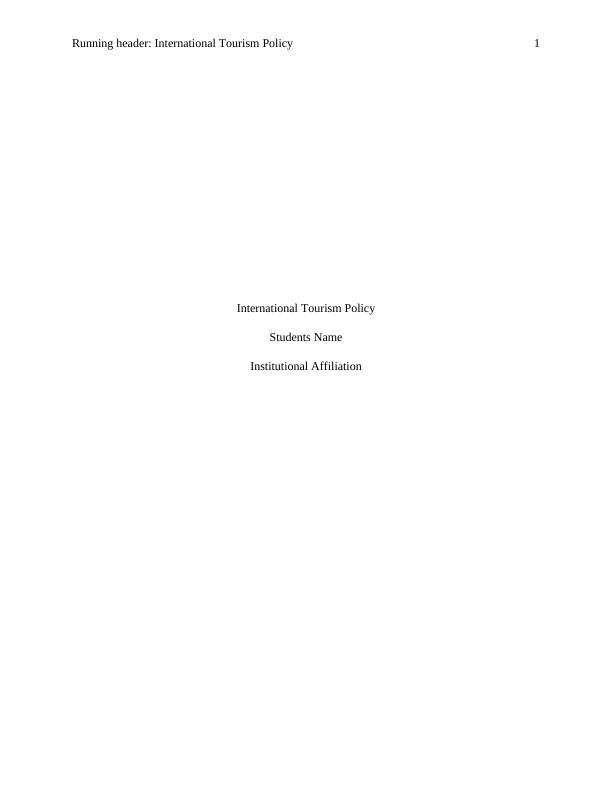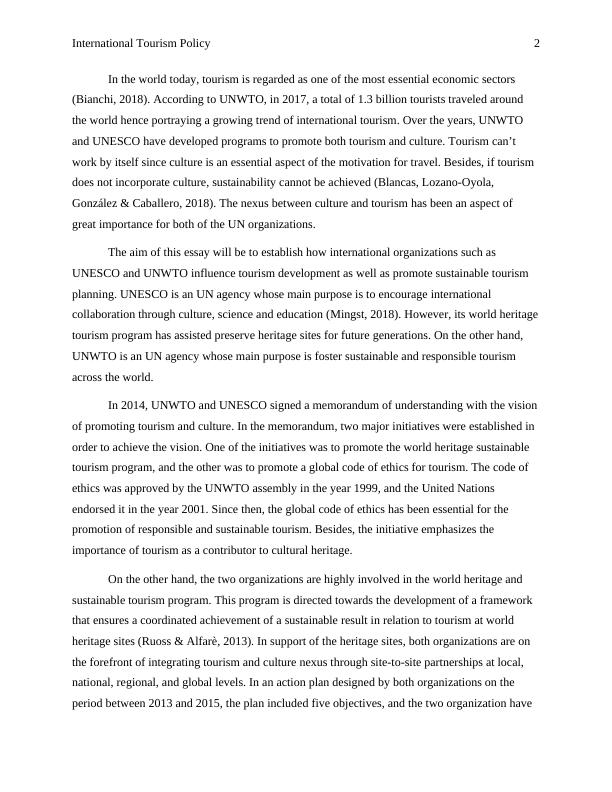International Tourism Policy
5 Pages1255 Words82 Views
Added on 2023-06-04
About This Document
This essay explores the influence of UNESCO and UNWTO on tourism development and sustainable tourism planning. It discusses the initiatives established by the two organizations and their involvement in the world heritage and sustainable tourism program.
International Tourism Policy
Added on 2023-06-04
ShareRelated Documents
End of preview
Want to access all the pages? Upload your documents or become a member.
Influence of Government and Policies on Tourism Sector
|15
|1028
|264
Policy and Planning in the Tourism Industry - Assignment
|13
|3837
|173
International Tourism Policy and Planning
|8
|1870
|257
World Tourism Organisation Assignment
|8
|2336
|95
Sustainable Tourism Development
|8
|2076
|403
Sustainable Operations and Destinations
|10
|2060
|169


